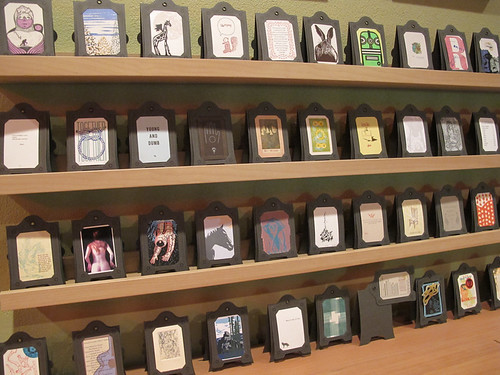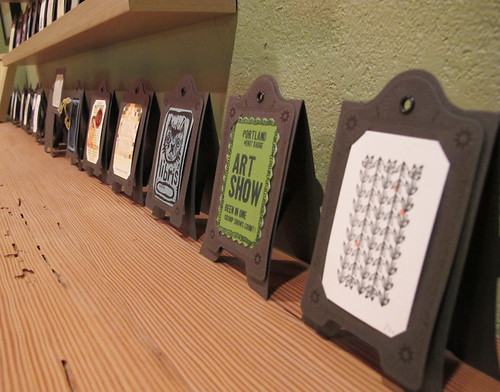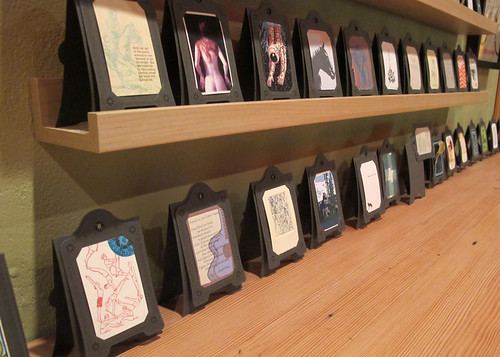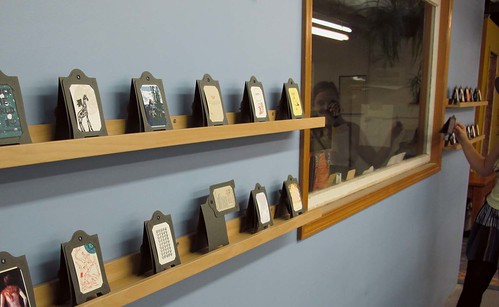I ordered some books about a week ago to do some reading and research for a new project idea I've been concocting dealing with fear and reactions to trauma and disasters (I really am a happy person, I'm not sure why I'm always focusing on this type of thing). Only one arrived thus far, last Saturday, titled "The Unthinkable: Who survives when Disaster strikes-and why" and I've already devoured it. It was a lot more anecdotal than I anticipated but the interviews are interesting and captivating. The stories are all first hand accounts of different major disasters and horrific events, all pretty much within the last 20 years. Most is supported by whatever scientific research can be found concerning the subject and I think it was actually a really great first read for the project. The project itself is still young in my mind, but I'm probably going to make (gasp) small prints for once for several different reasons but as per usual, mostly due to low funds.
Some of my favorite bits from the book:
"'I tell people if it's in the news, don't worry about it. The very definition of 'news' is 'something that hardly ever happens',' writes security expert Bruce Schneier. 'It's when something isn't in the news, when it's so common that it;s no longer news- car crashes, domestic violence- that you should start worrying.'"
"Words have less emotional salience than images. So it's much healthier to read the newspaper than watch TV."
"The time to let your emotions run free is when you can't get good data. Long ago, that would have been all the time. You would have needed to rely on your emotions every minute of every day. 'If you're back in time before books and statistical research, and you need to know which mushrooms are poisonous, going by rumor and hearsay is a good strategy,' says Gerd Gigerenzer, director of the Center for Adaptive Behavior and Cognition at the Max Planck Institute in Berlin. But when data are available- and they are now more available than any time before-there is no better complement to raw emotion."
Also the stories about Grand Bayou, a community that completely escaped the death tolls of Katrina simply because that had such a strong network and bond that no one left anyone else and they all evacuated early, and Langi, a community of 800 that also escaped the death tolls of the 2004 Tsunami in southeast Asia because they had a strong enough tradition of response and action to event the slight possibility of a disaster.
ED: I completely forgot this one section as well, anyone who knows me would easily guess why this bit appeals strongly to me. I am, always have been, and probably always will be a person who relies intensely on and embraces my emotions:
"The more Damasio learned, the more he came to appreciate so called irrational sentiments. Emotions and feelings were not impediments to reason; they were integral. 'Reason may not be as pure as most of us think it is or wish it were,' he wrote. 'At their best, feelings point us in the proper direction, take us to the appropriate place in a decision making space, where we may put the instruments of logic to good use.'
Once we factor in emotion, then, the human risk equation is actually more sophisticated, not less. Damasio's discoveries convinced me that the way for people to get better at judging risk is not to avoid emotion-or wish it away- but to capitalize upon it. Dread, properly tapped, can save our lives."



























